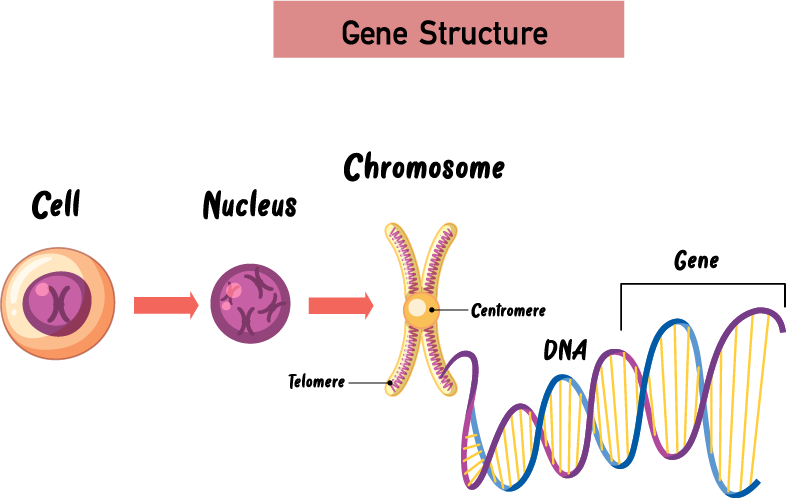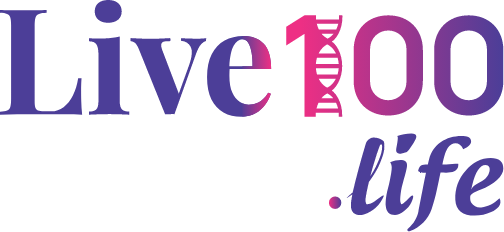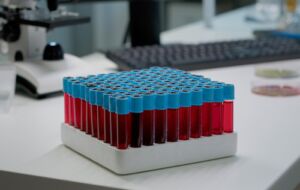A chromosome is a highly compact structure consisting of a long single molecule of the DNA, which is tightly wrapped around many times around proteins called histones. The combined length of all the chromosomes present in the human cell is around 200nm (1nm= 10 -9 m). However, if the chromosomes are opened up, the total length of the human DNA would be around 2 metres.
The chromosomes are present in the nucleus of the cell. Each chromosome has a point of constriction called the centromere. The centromere divides the chromosome into two arms- the short arm is called the ‘p’ arm and the long one is called the ‘q’ arm. Chromosomes cannot be visualised even under a microscope. It can be visualised only when the nucleus dissolves during cell division.





